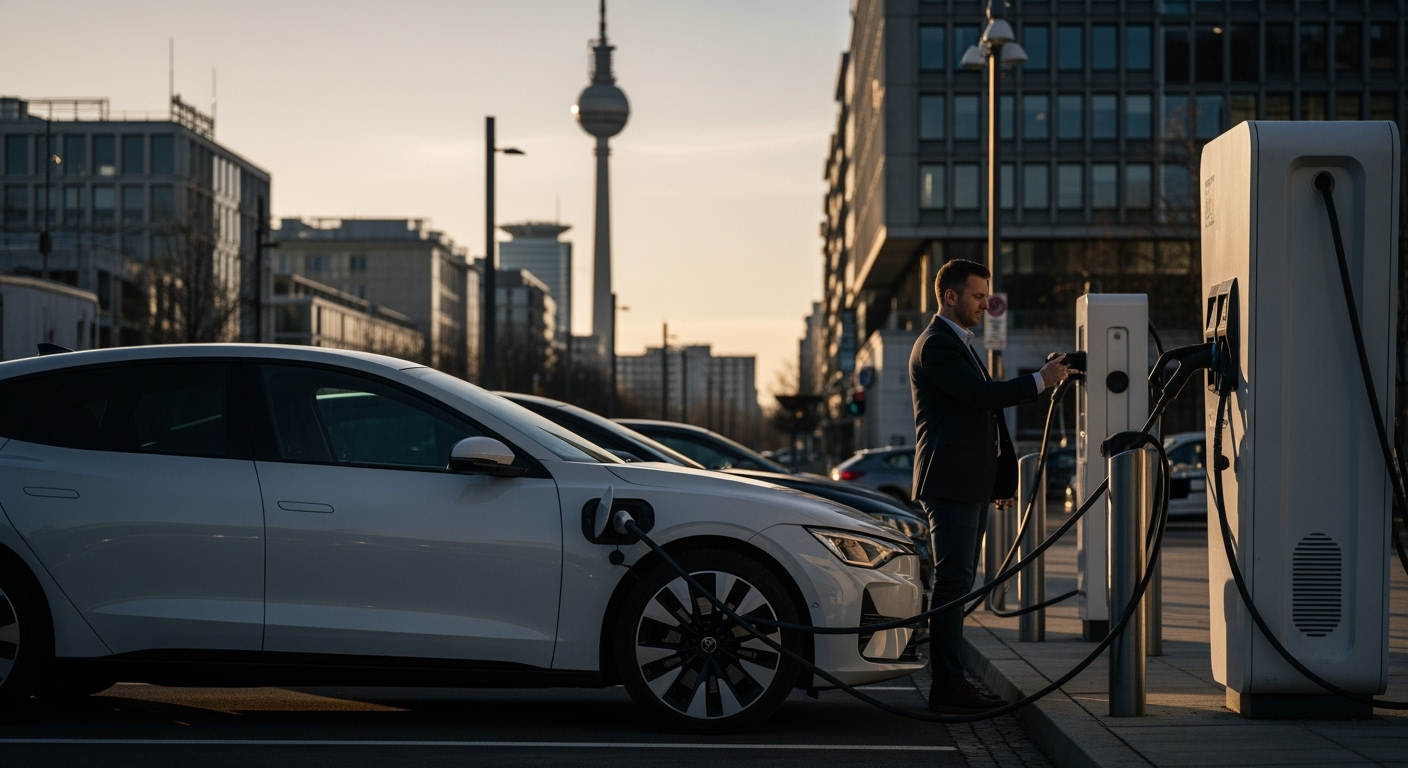Related Articles

Mexico Reels from Catastrophic Floods and Landslides, Death Toll Climbs to 37

Diane Keaton, Oscar-Winning Star and Unforgettable Icon, Dies at 79





Berlin, Germany – In a significant move aimed at further accelerating the adoption of electric vehicles (EVs) and reinforcing its commitment to climate goals, Germany has announced plans to extend the vehicle tax exemption for pure electric cars until December 31, 2035. The decision, revealed by Federal Finance Minister Lars Klingbeil on October 6, 2025, underscores the government's strategy to provide long-term incentives for consumers and stimulate the domestic automotive industry amidst a global shift towards sustainable mobility. This extension comes as a crucial policy instrument following the cessation of direct consumer purchase subsidies in late 2023, signaling a strategic pivot in how Germany fosters its electric future.
The current regulatory framework stipulated that the tax exemption for newly registered pure electric vehicles would expire on January 1, 2026. However, the proposed amendment to the Motor Vehicle Tax Act will now allow electric vehicles registered for the first time by December 31, 2030, to benefit from a maximum ten-year tax exemption, effectively extending the incentive period until the end of 2035. This measure is intended to encourage earlier purchases of pure electric vehicles and provide much-needed planning security for both private buyers and the automotive sector. The Finance Ministry acknowledged that this extension would lead to tax revenue shortfalls amounting to several hundred million euros for the federal government in the coming years.
The extension of the vehicle tax exemption is not an isolated policy but a key component of Germany's broader strategy to meet its ambitious climate targets and navigate the profound transformation of its cornerstone automotive industry. Germany is under increasing pressure to achieve its EU climate objectives, including a 65% reduction in greenhouse gas emissions from 1990 levels by 2030 and aiming for climate neutrality by 2045. Promoting electric mobility is identified as a critical pillar for achieving these national emissions reductions, alongside the development of renewable fuels, hydrogen technologies, and CO₂ reduction innovations.
Federal Finance Minister Klingbeil emphasized that creating the right incentives is essential to significantly increase the number of electric cars on German roads. This sentiment was echoed by industry leaders, including the German Association of the Automotive Industry (VDA), which had strongly advocated for the extension. Hildegard Müller, President of the VDA, highlighted the tax exemption's proven effectiveness as an incentive and warned of potential "significant consequences for the further ramp-up of e-mobility" if the measure were allowed to expire. The goal is not only to boost domestic EV sales but also to ensure that Germany remains a leading hub for automotive innovation and manufacturing, securing jobs in a rapidly evolving global market.
The government's decision to extend the tax exemption represents a shift in its approach to fostering electric mobility. Following the discontinuation of direct consumer purchase subsidies, known as the "Umweltbonus," in December 2023 due to budget constraints and a constitutional court ruling, Germany has increasingly focused on supply-side incentives and structural improvements. These new measures, part of the federal government's "Responsibility for Germany" program rolled out from July 2025, primarily aim to encourage corporate fleet renewal, support local EV manufacturing, and enhance charging and grid infrastructure.
Key aspects of this updated incentive package include special depreciation schemes for electric vehicles, designed to stimulate private and corporate investment in sustainable mobility. For instance, companies purchasing battery electric vehicles between July 2024 and December 2028 can deduct a substantial portion of the vehicle's value in the first year. Additionally, tax relief measures are being introduced to reduce corporate tax burdens and lower energy and electricity costs, making EV usage and charging more competitive. While the immediate focus is on businesses and infrastructure, there is also ongoing discussion about a potential "social leasing program" for electric cars, similar to initiatives in other European countries, which could offer support to low and middle-income households in the future.
Despite the positive reception from the automotive industry, the path to a fully electric future is not without its hurdles. The announcement of the tax exemption extension, while welcomed, has been preceded by a period of uncertainty, with some reports indicating that its implementation was under review due to budget concerns. This uncertainty has generated apprehension among potential EV buyers.
Furthermore, the broader ecosystem for electric mobility still requires significant development. While Germany's charging infrastructure is considered "very well developed" by some industry experts, there is a recognized need for continuous expansion and improved accessibility to support a rapidly growing EV fleet. Concerns also persist regarding electricity prices and the capacity of the grid to handle increased demand. The automotive industry has consistently called for improvements in charging infrastructure and a reduction in power prices, advocating for measures like lowering electricity taxes to European minimum rates.
The decision also comes at a time when the German automotive industry is grappling with sluggish sales, intense competition from Chinese manufacturers, and the complex shift to e-mobility. The industry's ability to adapt and innovate, supported by government policies, will be crucial for its future success and the preservation of jobs.
The German government's decision to extend the electric vehicle tax exemption until 2035 represents a strong long-term commitment to electric mobility, providing a clear signal of support to both consumers and the automotive industry. This measure, alongside other evolving incentives focused on corporate fleets and infrastructure development, forms a comprehensive strategy designed to foster EV adoption, meet ambitious climate targets, and secure Germany's competitive edge in the global green transition. While fiscal implications and the need for continued infrastructure development remain pertinent considerations, this policy extension is poised to be a significant driving force in solidifying Germany's electric future. The success of this strategy will depend on its consistent implementation and ongoing adaptation to the dynamic demands of the burgeoning electric vehicle market.